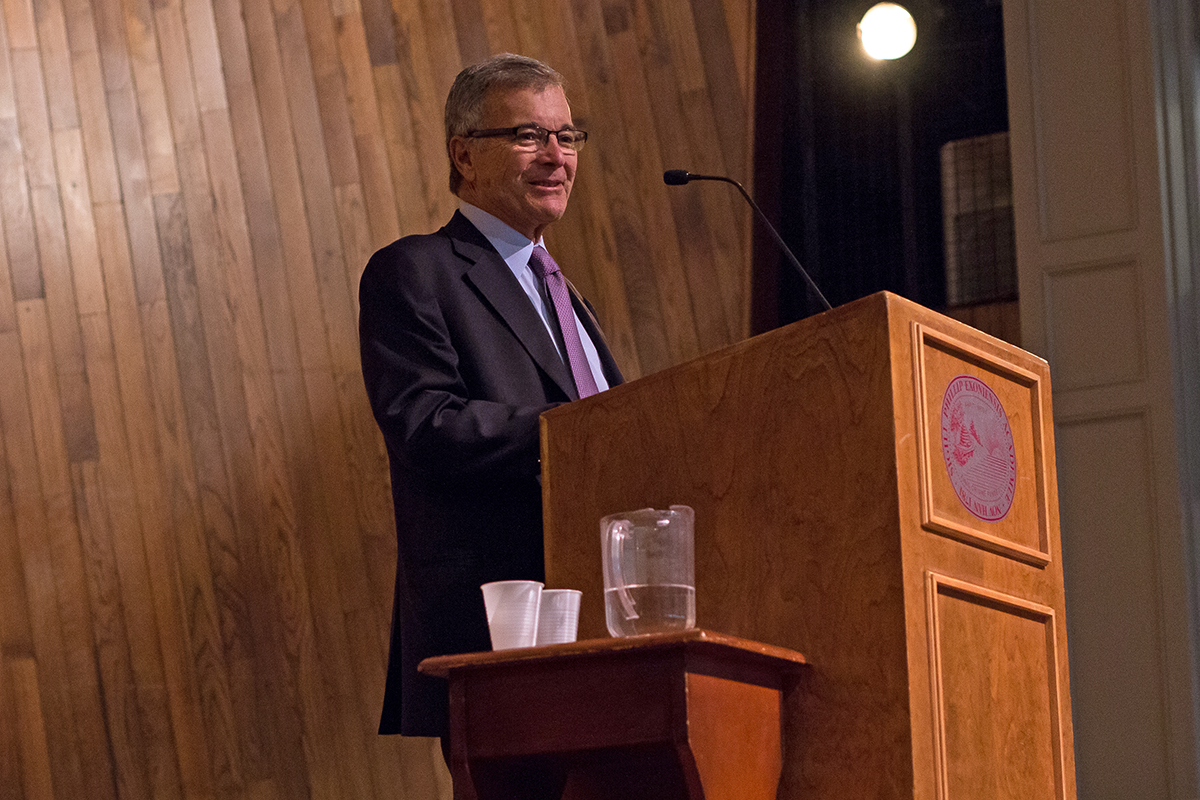We try to work in areas where we can make a real difference.”
Stephen Robert

Financier Stephen Robert ’58 has enjoyed a long and successful career on Wall Street. A graduate of Brown University, the London School of Economics and Columbia University’s School of Business, Robert started in investment banking with Oppenheimer & Co. in 1968 as a junior portfolio manager. He retired nearly 30 years later as the company’s CEO and largest stockholder.
But the 78-year-old’s greatest professional successes are far surpassed by the life-altering work he has done through his philanthropic missions. “Life is about empathy, it’s about hope,” he says. “That’s really what’s worth something. That’s what you leave behind.”
Building a foundation
While serving on numerous charitable boards, Robert felt a desire to become more involved, in a holistic way, with the projects he was helping to fund. So eight years ago, he and his wife, Pilar Crespi Robert, established the Source of Hope Foundation to provide sustainable aid around the world in the form of food, water, money, medical care and education. “We’re working in often inhospitable places that are experiencing civil war, famine or terrible governments,” he explains. “We try to work in areas where we can make a real difference.”
Robert — who has chaired Brown University’s Watson Institute for International Studies and Public Policy, and is a member of the Council on Foreign Relations and the Brookings Foreign Policy Advisory Committee — applies his knowledge of international relations when establishing small-scale, tangible projects in places such as Ethiopia, Haiti, Columbia, Palestine and Israel.
The couple fund the foundation largely by themselves, and make a point to visit each project site at least once a year. The Roberts don’t pay themselves a salary and only employ one assistant, so nearly all of the money they raise goes directly into helping others. “I like the fact that we’re not building up operating costs,” Robert says. “I like to say, ‘We’re the founders, funders and staff of Source of Hope.”
Supplying communities with potable water, school supplies or medicine may lack the social prestige of more traditional philanthropies (“It won’t get your name on a building,” he says,) but Robert hopes more young people will follow his lead.
Reconnecting with his roots
Robert’s commitment to aiding others was developed early on in life. “My parents believed in philanthropy,” he says. “I grew up thinking philanthropy was just something you did, like breathing.” The son of “loving and wise immigrants who had little formal education,” Robert was also one of the few practicing Jewish students in Exeter’s mostly white, Anglo-Saxon community that still had daily chapel requirements in the 1950s. (“I occasionally still find myself subconsciously humming lines to ‘Onward, Christian Soldiers,’ in synagogue,” he quips.) Remembering himself a lonely teenager who felt overwhelmed academically and socially, Robert says, “After my graduation … I took a bit of a break from Exeter.”
Don’t think of it as giving back. It’s just what you do for your fellow humans."
That break lasted nearly six decades, but a gratifying conversation about the Exeter of today with Ronnie Dixon ’07, a young alumnus working in the Office of Institutional Advancement, persuaded Robert to return to campus for his 60th reunion last year. Robert came away from both visits heartened and impressed by a school more welcoming and nurturing —and much more representative of the country at large — than he had experienced.
Invited to speak at assembly in September — in the same space where he used to attend chapel — Robert was humble, warm and witty. Praising “the beautiful diversity” he found on campus, he told the gathered Exonians that “the deepest meaning of life is how you help other people” and urged them to “chase their dreams vigorously” and become strong enough to take care of other people. He added: “Don’t think of it as giving back. It’s just what you do for your fellow humans.”
— Genny Beckman Moriarty
Editor’s note: This article first appeared in the winter 2019 issue of The Exeter Bulletin.


